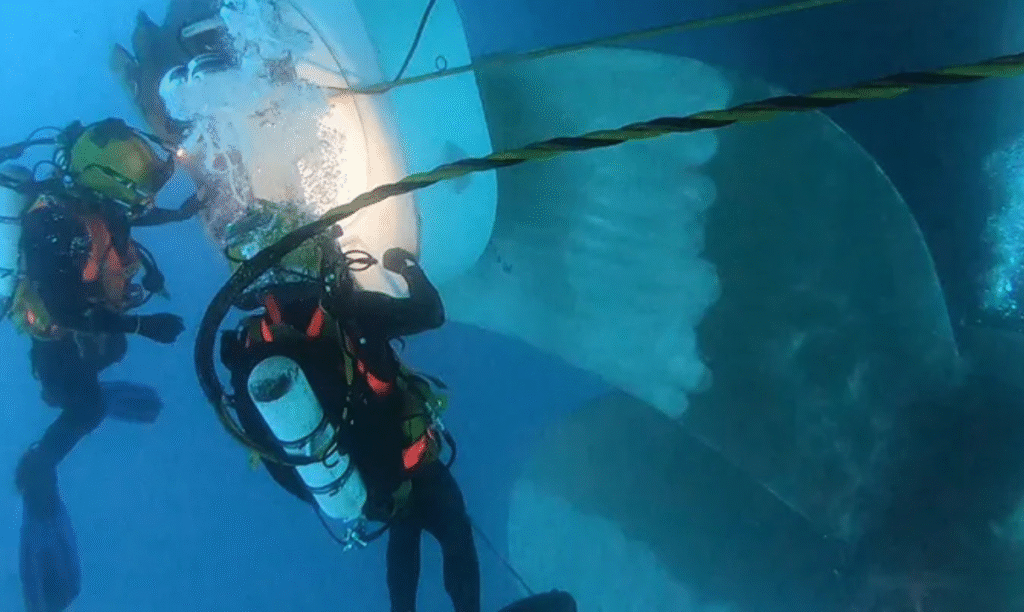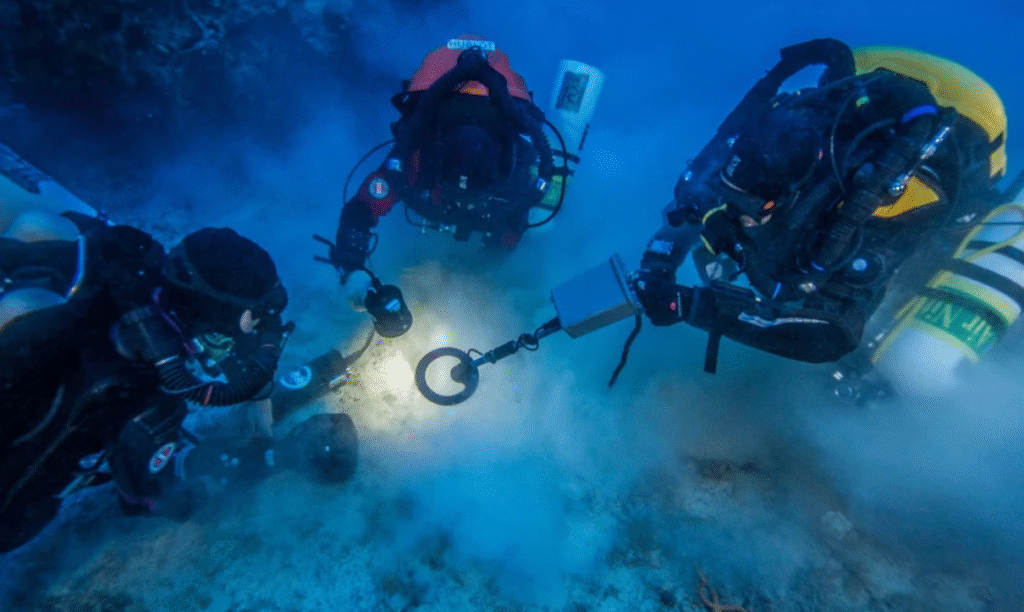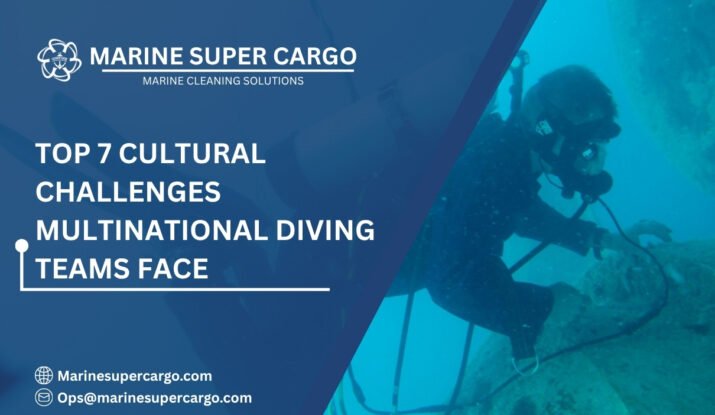When we think of multinational diving teams, we imagine skilled professionals uniting underwater for complex tasks across oceans and ports. But below the surface of these operations lies a less obvious challenge: culture. Just like different currents meeting under the sea, diver backgrounds, languages, and traditions often collide and influence teamwork. If not managed well, these challenges can ripple into safety risks, operational delays, or even non-compliance with international standards.
In this article, we dive deep into the cultural complexities of multinational diving teams, uncover the hidden obstacles, and explore strategies that keep missions safe, efficient, and compliant.
Why Culture Matters Underwater
Diving may sound purely technical—about air tanks, decompression schedules, and hull cleaning. But diving is also intensely human. Each diver brings unique values, work ethics, and communication styles shaped by culture. Unlike surface-based jobs, misunderstandings underwater can turn critical because divers often rely on non-verbal cues, signals, and absolute trust in their teammates.
Cultural differences, if embraced, enrich teams with creativity and resilience. But if neglected, they can hinder progress, creating friction in fast-moving marine operations.

Key Cultural Challenges in Multinational Diving Teams
Let’s break down the main cultural hurdles that surface in underwater operations and how they impact safety, compliance, and cost efficiency.
Communication Gaps
Language barriers are perhaps the most visible challenge in multinational diving teams. A diver from Norway may signal “OK” differently than one from the Philippines, and such nuances can be life-saving or disastrous. Misunderstanding hand signals or briefing instructions could risk safety or delay operations.
Hierarchy and Authority
In some cultures, hierarchy is respected rigidly, while in others, decisions are shared more openly. Imagine a junior diver noticing a hazard but holding back because, in their culture, questioning a supervisor feels disrespectful. This hesitation can create blind spots that risk safety standards set by organizations like the International Marine Contractors Association (IMCA).
Safety Perceptions
Not all divers are trained under the same frameworks. While IMCA and the International Maritime Organization (IMO) promote universal safety codes, attitudes vary. For example:
- Some cultures may prioritize speed over safety.
- Others may adhere strictly to checklists.
This misalignment can lead to tension between team members and inconsistent safety practices.
Work Ethics and Time Orientation
Marine operations often depend on punctuality, efficiency, and strict timelines. But cultural perceptions of time differ. Some divers expect flexibility, while others value precision. This variation can cause frustrations in scheduling crew rotations or strict underwater windows for hull inspection.
Team Cohesion and Trust
Trust underwater is non-negotiable. Yet building trust across diverse cultures is not instant. In some cases, stereotypes or unconscious biases can foster divisions within the team. Bridging these gaps demands leadership that understands cultural psychology as much as technical diving.
Case Studies: Where Culture Made or Broke a Dive
The Misinterpreted Signal in the Port of Singapore
In one dive, a mixed team from Southeast Asia and Europe struggled with simple underwater signals. One misinterpretation led to a diver surfacing earlier than planned, delaying hull cleaning tasks. It wasn’t a catastrophic event, but it underlined a glaring problem: inconsistent communication systems in multinational diving teams.
The Hull Cleaning Success at Rotterdam
On the flip side, a Dutch-led team implemented standardized IMCA signals and pre-dive safety checks across nationalities. By investing just an extra 20 minutes in daily alignment sessions, they reduced delays and completed operations two days ahead of schedule. This shows how proper cultural management can translate directly into cost savings. Also read about – Building a sustainable career in underwater hull cleaning
Best Practices to Overcome Cultural Challenges
To ensure multinational diving teams thrive, operators must implement systems that anticipate and bridge cultural barriers.
Standardized Communication Tools
- Adopt universal hand signals recommended by IMCA.
- Use waterproof cue cards for complex tasks.
- Ensure all briefings are done with simple, jargon-free English.
Culturally Aware Leadership
- Train supervisors in intercultural communication.
- Encourage open-door policies for reporting concerns.
- Rotate leadership roles to balance power dynamics.
Continuous Safety Training
- Align all divers to IMO and MARPOL safety codes.
- Conduct simulations involving scenarios prone to miscommunication.
- Encourage a “speak-up” culture where identifying hazards is rewarded.
Team-Building Beyond Work
- Organize cultural exchange activities off-shift.
- Encourage shared meals or storytelling to build trust.
- Use mentorship programs to pair experienced divers from different backgrounds.
✅ 4 Things to Check for Safety at Sea pic.twitter.com/dAxhJQ2i6U
— Marine Super Cargo (@Marinsupercargo) September 14, 2025
Technology to Reduce Gaps
- Use digital translation apps during surface briefings.
- Implement diver helmets with communication systems that minimize dependence on hand gestures.
- Standardize reporting documentation across ports using IMO compliance formats. Learn more about the Future of autonomous in-water cleaning fleets.
Compliance, Cost, and Environmental Stakes
Cultural mismanagement is not just about human friction—it has broader implications:
- Compliance: Non-alignment with international practices can violate conventions like MARPOL or IMCA guidelines.
- Cost: Delays due to miscommunication increase operational expenses, fuel costs, and port fees.
- Environment: Incomplete procedures—like leaving hull cleaning unfinished—result in biofouling, which increases carbon emissions and breaches global environmental agreements recognized by the International Association of Ports and Harbors (IAPH).

The Future of Multinational Diving Teams
Looking ahead, cultural challenges won’t disappear. In fact, with global trade increasing and ports becoming busier, diving teams will become more multinational than ever.
Emerging trends include:
- Artificial Intelligence in Diver Communication: AI-driven speech-to-text translations for underwater comms.
- Virtual Reality Training: Cultural immersion exercises where divers train alongside avatars from different countries.
- Green Operations: Multinational diving teams focused on sustainability through innovative hull-cleaning tools, reducing biofouling and fuel inefficiency.
Conclusion
In multinational diving teams, culture can be either ballast or wind in the sails. Teams that fail to navigate cultural dynamics risk safety lapses, higher costs, and compliance issues. But those who embrace cultural differences through standardized communication, safety training, and strong leadership unlock immense value.
Key Takeaways:
- Communication and trust are the lifelines of multinational diving teams.
- Cultural intelligence is as vital as technical expertise for safe, cost-efficient, and compliant operations.
- Future innovations in technology will further reduce cultural barriers while promoting greener marine practices.
For teams looking to strengthen compliance, improve efficiency, and minimize environmental impact, connecting with sustainability-focused organizations like CleanShip.co is a wise step forward.
FAQs:
Q1. Why do communication challenges arise in multinational diving teams?
Because divers come from different linguistic and cultural backgrounds, hand signals and instructions may be misinterpreted, leading to delays or risks.
Q2. How do cultural differences affect diving safety compliance?
Different safety perceptions can clash. Without alignment to IMO and IMCA standards, teams risk inconsistent practices that compromise safety.
Q3. What strategies help build trust in multinational diving teams?
Culturally aware leadership, shared safety drills, and team-building activities ensure divers trust one another both on the surface and underwater.
Q4. How do cultural challenges impact environmental compliance in diving?
Incomplete hull cleaning or misaligned procedures may increase biofouling, directly raising a ship’s carbon footprint and breaching MARPOL guidelines.
Q5. What future technologies can support multinational diving teams?
AI-driven communication tools, VR training, and advanced underwater helmets are emerging solutions that will bridge cultural gaps and improve safety.


